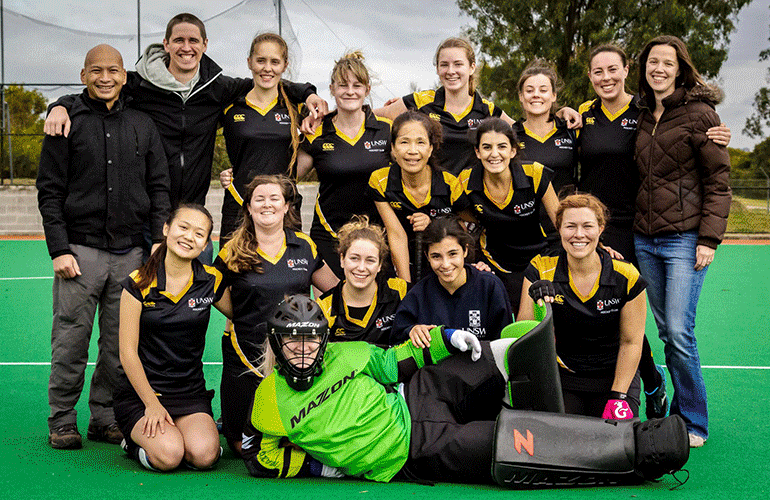Have questions?
We’re here to help. Get personalised advice from our friendly Future Student Advisors. Connect with us by phone, chat with us online or send us an enquiry.
Growing up in North West NSW, it was a big decision for Meg to relocate to Sydney for university. Meg knew she was interested in law and justice and loved writing, but didn't necessarily want to be a lawyer. At UNSW’s Open Day during year 12, she learned more about the combined theoretical and practical approach of UNSW’s Bachelor of Criminology & Criminal Justice, where students learn about criminal justice, crime prevention and law enforcement and how society responds to them.
Meg's classes didn't just teach the latest theories and research but discussed and applied them to today's issues. By engaging with real-world challenges, students build their understanding of the complexities of what leads to crime, how it’s defined and how it impacts communities. Vaping, pill testing, sexual violence, Indigenous justice and, more recently, COVID-19 vaccinations were just some of the topics critically examined in class.
"From day one, it was about developing your criminology mind and how you view issues. For example, if it's something to do with the vaccine roll-out, how you examine and approach the issues."
"Having to really develop your worldview and getting challenged every day to think – ‘How do I feel about this? What’s my opinion?’ I loved it so much."
Taught as a cross-faculty program, the Bachelor of Criminology & Criminal Justice brings together UNSW Law & Justice and School of Social Sciences expertise. This partnership draws on disciplines from across the university, including psychology, sociology, criminal law, cultural studies and more.
Meg views this link as critical to understanding applications of law and justice on issues across society.
"Criminology and law as a whole; it's something you practice, but it's more so something you apply. For example, applying criminology and law to architecture and finding ways to make places such as Martin Place safer by stopping car access while also making it look pretty. It's that overlap of two different hemispheres of learning," she says.

Practical learning is an important part of the degree, allowing students to develop grant applications, conduct crime safety audits and gain insights into different aspects of the criminal justice system through industry experiences.
During her degree, Meg visited Long Bay Correctional Centre, the Mounted Police Unit, a legal injection centre in Kings Cross, the Female Factory historic site and received talks from leading industry professionals such as the NSW Police Deputy Commissioner. She admits that these were eye-opening experiences that developed her understanding of the real people behind the criminal justice system.
"It's not necessarily just what you learn, but how you learn and how you develop your worldview. It's building up how you react to things," she says.
Meg's degree led her to an interest in making meaningful differences in the lives of those impacted by crime. She’s now studying her Master of Laws with a criminology specialisation, through which she’s continuing research into drug-use, addiction and initiatives to help combat these issues.
"I knew that I could challenge myself more, and I'm so glad the challenge was there. I liked that the Master of Laws is setting me up for good research practice, bolstering my law background and that I can do criminology as a specialisation."
Meg also chose the program to develop her professional skills, like mediation. "It's about people skills and how to act and react to situations that come up. If I do something like counselling, or working with or for the government or police, it's super important to have these skills."
Meg's advice to students interested in a future in Criminology & Criminal Justice is not to second guess it.
"If you have the drive to learn more about the justice system and your place in it, it's probably a natural urge. I think everybody should be involved in understanding the study of law because it's inherently very rewarding."
"Meeting the people in the class is going to be the most rewarding and surprising part. You think it's going to be what you studied, but it's who you're studying with that makes a big difference and is what's most enjoyable about turning up every day."